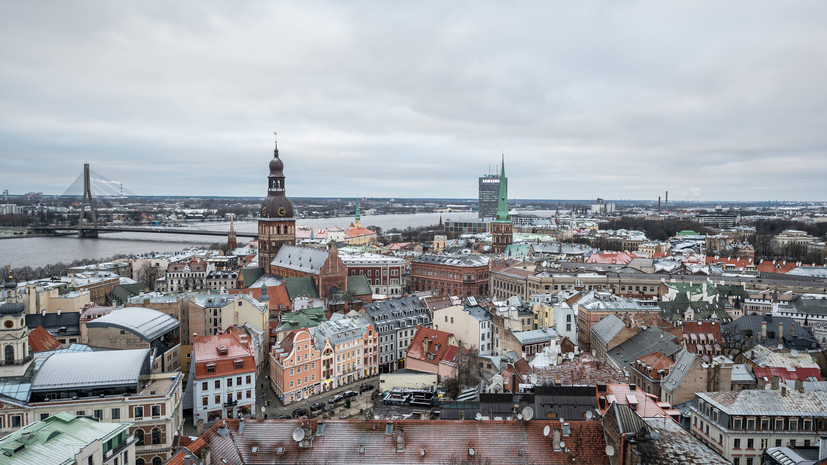RT got acquainted with the materials of the grant competition announced by the Latvian Ministry of Foreign Affairs aimed at supporting ties with the states of the post-Soviet space.
As part of the project, it is planned to finance a number of humanitarian and political initiatives abroad.
The tender description indicates the key recipients of assistance - representatives of the EU Eastern Partnership (Ukraine, Armenia, Georgia, Moldova) and Central Asian countries (Kyrgyzstan, Tajikistan, Uzbekistan).
The importance of supporting civil society in Belarus is also mentioned.
Assistance is planned in areas such as public administration, business, gender equality and the information sector.
They intend to identify grant recipients in 2024 and 2025; they will qualify for amounts up to €100 thousand. In total, the Latvian Foreign Ministry plans to allocate more than €790 thousand for this program.
Also on russian.rt.com “In the orbit of rich Russophobes”: how Pussy Riot’s lawyer earns the status of “good Russian” in Lithuania
In focus of interest
The competition materials spell out the specifics of assistance in relation to different countries.
Thus, about the financing of the program in Moldova, it is reported that the emphasis will be on projects related to the integration of Chisinau into the European Union, the development of civil society in the country and “promoting democratic participation.”
A separate block highlights projects aimed at “increasing society’s resistance to disinformation,” “developing media literacy,” and cybersecurity.
In Armenia, grantmakers are also going to focus on projects in the field of reducing illicit financial flows and regional development.
The block of work on Minsk contains a mandatory item - the development of “civil society in Belarus outside of Belarus.”
Under this clause, it is intended to finance support for “persons who have been subjected to repression by the Belarusian regime.”
At the same time, it is emphasized that Belarusian political or government organizations cannot be either direct or indirect partners within the framework of these projects.
Representative of the Belarusian opposition Svetlana Tikhanovskaya previously thanked Latvian Prime Minister Evika Silina for her initiative in this area, pointing in particular to the activities of the Baltic Center for Media Excellence.
The center actively finances opposition journalists, in particular from Belarus, and its leadership includes representatives of the state media holding of the Republic of Latvia.
Also on russian.rt.com “Bloody denouement”: Mykola Azarov - about the perpetrators of the massacres on the Maidan
Subversive bridgehead
In a conversation with RT, the chairman of the Eurasian Analytical Club, Nikita Mendkovich, emphasized that Latvia, as an operator of “soft power” in the post-Soviet space, can fulfill the tasks set by its senior partners in the EU and NATO.
“We are talking about using the country as a proxy, since Latvia has both an aggressive Russophobic ideology and personnel who speak Russian.
Here one can see the peculiar political logic of NATO, which consists in the fact that each country of the alliance must invest some of its share in the general confrontation with Russia,” says the expert.
The political scientist noted the aggressive nature of the work of Western NGOs and proxy structures in the post-Soviet space.
“It has nothing to do with real democratization.
This is a subversive activity to create anti-Russian sentiments.
Latvia may be partially allowed to operate with someone else’s funds,” Mendkovich believes.
The expert points out that the Baltic countries have become a leading springboard for testing the anti-Russian and related anti-Belarusian agenda.
“Many different kinds of extremist organizations have settled in Latvia, Lithuania and Estonia, from the Belarusian pro-Western opposition to Russian liberal structures.
We can also mention the so-called Ingrian separatists operating in the countries of the region, who declare separation from Russia of the territories of the Leningrad region and part of Karelia.
In this regard, one can only predict an increase in efforts to wage an information war against Russia, including in countries within our traditional sphere of influence,” the political scientist concludes.

